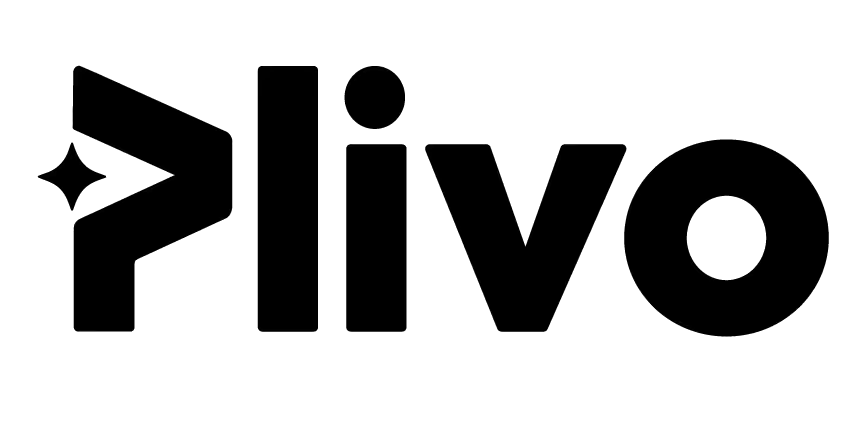Legal
AI/ML Terms of Service
Last Updated: Novembar 28, 2021
These Terms govern the use of predictive and generative AI/ML features within the Service. By using the AI/ML features, you agree to comply with these Terms along with the Terms of Service and Privacy Policy.
Definitions
- AI/ML Content: Refers to (a) any Input processed via an AI/ML Feature, or (b) any Output generated by an AI/ML Feature.
- Input: Data or information provided by the user for processing through an AI/ML Feature.
- Output: Data or information generated by an AI/ML Feature in response to an Input.
1. Service Overview
- The Service provides AI/ML functionalities such as natural language processing (NLP), automated speech recognition (ASR), predictive analytics, chatbots, content generation, voice synthesis, and other intelligent automation features.
- These features are designed to enhance communication processes, including call routing, customer service automation, real-time transcription, conversational AI, and content generation.
2. Data Privacy and Processing
- The processing of data within the Service is governed by the Privacy Policy, which outlines the collection, usage, and protection of personal information.
- Data processed by AI/ML features will be anonymized or aggregated to the extent possible to protect user privacy, in accordance with relevant data protection laws (e.g., GDPR, CCPA).
- Users must secure informed consent from end-users for AI/ML features that involve processing real-time communications or personal data. Consent records should be maintained and provided upon request. The Plivo may audit these records with 30 days’ notice.
- The Plivo and its affiliates act as data processors, processing AI/ML Content based on user instructions and for purposes such as delivering AI/ML features, addressing security incidents, and ensuring compliance.
3. Data Usage and Retention
- Data submitted to the Service may be used to enhance AI/ML models, provided it is anonymized or aggregated.
- Retention of data used for AI/ML purposes will be limited to the duration necessary to achieve the Service's objectives, meet legal requirements, or as outlined in the data retention policy.
- Users can request the deletion or anonymization of their data in accordance with applicable laws and the Service’s data management policies.
4. Intellectual Property
- The AI/ML models and algorithms used by the Service are the intellectual property of the Plivo or its licensors. Users are granted a non-exclusive license to use the AI/ML features solely for the Service's purposes.
- Content generated by AI/ML features, such as text, voice, or images, may be subject to additional ownership and licensing terms.
- Users retain ownership of their data, but submission for AI/ML processing does not transfer ownership to the Plivo, except as needed for providing the Service and improving AI/ML features.
5. Compliance Responsibilities
- Users must comply with all applicable laws regarding AI/ML services, including data protection, export controls, and telecommunications regulations.
- While the Service may offer tools to support compliance, such as data anonymization or consent management, ensuring compliance remains the user’s responsibility.
6. Limitations of AI/ML Outputs
- The AI/ML features are provided "as-is" without guarantees regarding accuracy, reliability, or completeness.
- AI/ML models may produce inaccurate, biased, or offensive outputs. Users are responsible for reviewing and editing AI-generated content before use.
- AI/ML outputs should not be solely relied upon for making decisions in critical situations, such as legal, medical, or emergency services.
7. Limitation of Liability
- The Plivo disclaims liability for direct, indirect, incidental, special, or consequential damages arising from the use of AI/ML services, even if the possibility of such damages was disclosed.
- The total liability for any claims related to the AI/ML services shall not exceed the limits of liabilities under Terms of Services.
8. Ownership of Generated Content
- Users retain ownership of their Input data, while the Plivo may use anonymized or aggregated data to improve AI/ML models.
- The Plivo, or its third-party providers, owns all rights to the AI/ML features, while users retain ownership of AI/ML Content unique to them.
9. Third-Party Technology
- The Service may integrate AI/ML technology provided by third parties. Users agree to the disclosure of Input data to third-party providers as necessary for Service functionality.
- Users must comply with any additional terms set by third-party technology providers.
- The Plivo does not guarantee the availability or performance of third-party technologies.
10. Prohibited Uses
- Users shall not use AI/ML services for illegal, harmful, or unethical purposes, including but not limited to:some text
- Violating privacy rights
- Creating deepfakes, misleading content, or disinformation
- Discriminatory practices or unlawful profiling based on AI outputs
- Users may not use AI/ML features to develop their own AI models, deceive others about AI-generated content, or engage in high-risk activities without safeguards.
- The Plivo may suspend access in the case of prohibited use.
11. Modifications to the Terms
- The Plivo reserves the right to update these Terms periodically. Users will be informed of significant changes, and continued use of the AI/ML features after changes will indicate acceptance of the updated Terms.
12. Conflict Provision
- In the event of any conflict between these AI/ML Terms and the Terms of Service, including DPA, BAA etc., the provisions in these AI/ML Terms shall prevail with respect to the use of AI/ML features.
- If there is a conflict between the Terms and any third-party technology provider's terms, the third-party terms will govern concerning the use of their specific technology. However, this does not limit the Service provider's ability to impose additional restrictions or requirements regarding the use of the Service.

